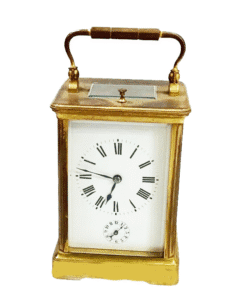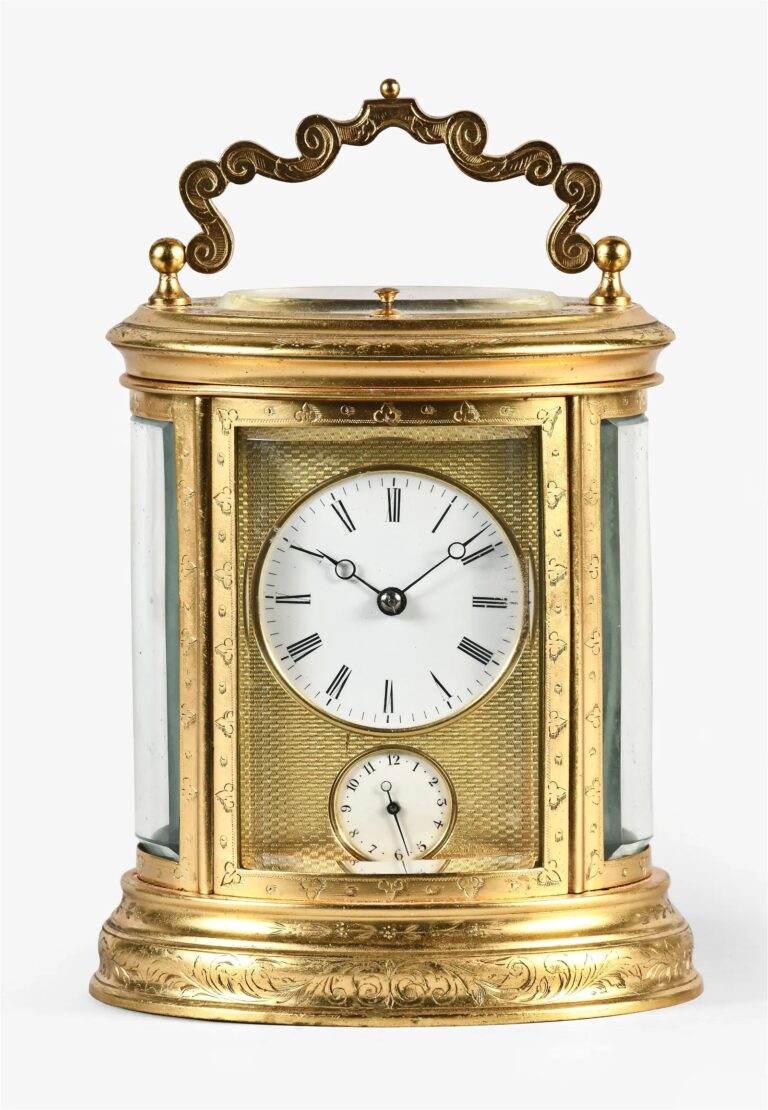Why Collectors Still Treasure These Portable Timepieces
Few objects combine beauty, craftsmanship, and history quite like a vintage carriage clock. Once an essential companion for travelers, this compact clock became a showcase of mechanical genius and refined taste. Today, collectors and enthusiasts seek the vintage carriage clock for its intricate design, precision, and elegance — proof that timekeeping can be both functional and artful.
The Origins of the Vintage Carriage Clock
The vintage carriage clock traces its roots to 19th-century France. Created for aristocrats and well-to-do travelers, these portable clocks featured protective brass cases, beveled glass panels, and detailed enamel dials. Unlike bulky mantel clocks, the vintage carriage clock was built to move — a luxury travel accessory that reflected its owner’s sophistication.
As time passed, French carriage clocks became the standard of excellence. Their balance of elegance and engineering made them icons of the era. Many collectors today specifically hunt for French carriage clocks, not only for their accuracy but for the unmatched craftsmanship that defined early European horology.
Why a Vintage Carriage Clock Holds Its Value

A genuine vintage carriage clock remains highly desirable among collectors. Its value comes from more than age — it’s about artistry, originality, and mechanical integrity. When assessing valuable antique clocks, experts look for hand-finished escapements, signed dials, and authentic cases. These details separate truly valuable antique clocks from simple reproductions.
Well-preserved examples of the vintage carriage clock often fetch strong prices at auctions. They embody the golden age of clockmaking, where precision met passion. For those who appreciate vintage antique clocks, the appeal lies in the tactile experience — winding the key, hearing the steady tick, and watching the mechanism breathe life into time.
Distinguishing French Craftsmanship
While vintage carriage clocks were produced across Europe, French carriage clocks remain the benchmark. Makers like Breguet, Drocourt, and Le Roy elevated these travel clocks to luxury objects. Every bevel, hinge, and spring reflected obsessive attention to detail. Collectors value this heritage — it’s what makes these French carriage clocks stand apart from later imitations.
Even today, experts recognize how much influence these French designs had on later vintage carriage clock models. The geometry of the case, the clarity of the dial, and the quality of movement all trace back to France’s early masters.
The Modern Collector’s Perspective
Owning a vintage carriage clock connects you to more than just a century-old object — it’s a living piece of horological history. In a digital age, where most timepieces are silent and soulless, the rhythmic tick of a vintage carriage clock feels grounding.
For collectors focused on valuable antique clocks, these portable treasures remain an accessible yet meaningful choice. They’re compact enough to display easily, yet carry all the prestige of larger vintage antique clocks. The combination of aesthetic charm and functional beauty makes them enduring conversation pieces.
Caring for Your Vintage Carriage Clock
Preserving a carriage clock takes care and respect. Keep it away from direct sunlight and humidity. Wind it gently, never forcing the key. Regular servicing ensures the delicate mechanism stays accurate for years. Many owners find that maintaining carriage clocks deepens their appreciation for the craft — every gear and spring tells a story of time well made.
Those investing in valuable antique clocks often rely on professional restorers who specialize in 19th-century mechanisms. A properly serviced carriage clock can last generations, maintaining both its beauty and value.
A Testament to Mechanical Artistry
Ultimately, the vintage carriage clock stands as a reminder of when design met durability. It bridges centuries — from horse-drawn travel to the modern collector’s shelf. Whether you favor French carriage clocks or other vintage antique clocks, each one captures a chapter in the evolution of timekeeping.
For anyone drawn to fine detail and enduring artistry, the vintage carriage clock remains more than a collectible — it’s a celebration of mechanical mastery, built to be cherished across time.


